Emergency Orthodontist — Rochester, NY | Webster, NY
Need Help Now? We Have You Covered!
In an ideal world, a patient would begin their orthodontic treatment and we would only see them for their routine adjustment appointments every six to twelve weeks. Before you know it, orthodontic treatment is done – nice and easy. Of course, as we all know, life often gets in the way of anything that is supposed to be “nice and easy.” Orthodontic emergencies can happen to people of all ages during treatment. Should our patients ever need help with a pressing problem, we are ready to provide it. If you or your child have an urgent orthodontic emergency in Rochester, just call or text us at (585) 750-0960 . We will work to resolve the orthodontic emergency as quickly as possible, even if that means scheduling you for a same-day appointment.
Why Choose Drabik Orthodontics for Emergency Orthodontic Care?
- Same-Day Emergency Appointments Available
- Orthodontist with More than 20 Years of Experience
- Kind, Friendly, and Highly-Skilled Team
What to Do in an Orthodontic Emergency
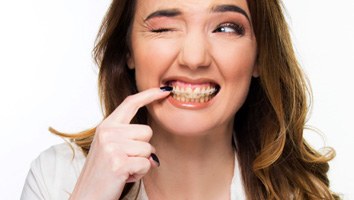
Perhaps you haven’t had an orthodontic emergency before. Well, don’t panic; our team will guide you through how to proceed. To that end, follow the three steps below:
- Call Our Office: Though most orthodontic emergencies aren’t worrisome, give our office a call. One of our experienced team members can tell you how to handle the situation. For instance, they might suggest using dental wax, rinsing with salt water, wearing new aligners, taking pain relievers, etc. If you don’t already know what to do, then, call us!
- See Us for a Visit: If your issue isn’t fixable over the phone, we’ll invite you to visit us. Based on your emergency’s severity, that might mean a same-day appointment, the next-soonest availability, or your routine orthodontic visit.
- Get Needed Care: Rest assured, we quickly, easily, and affordably treat orthodontic emergencies in Webster; you’re in good hands. Take note, however, that you may need a follow-up visit if new appliance parts must be ordered. Furthermore, if your emergency stems from underlying health issues or involves tooth damage, we may refer you to a general dentist. (If your jaw is broken or dislocated, please go directly to your local ER.)
The Most Common Orthodontic Emergencies
Admittedly, orthodontic emergencies aren’t that common. They still happen, though, so you should seek qualified help if you’re in pain or worried. Just managing things at home can negatively impact your treatment. In contrast, an orthodontist is well-equipped to deal with damaged braces or aligners. More specifically, you can trust them to get your appliance back on track!
Understanding the Cost of Orthodontic Emergencies
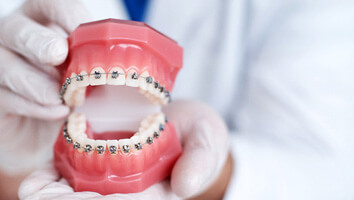
Perhaps you’re worried that orthodontic emergency care is too pricey. After all, a procedure won’t help if it exceeds your budget! In truth, though, no two orthodontic emergencies are exactly alike. You’ll thus have to consult our team for an exact treatment estimate. At that time, we’ll perform an oral exam to learn about your issue and its associated costs. From there, our team will explain your available financing options to help you stay within your budget. Simply click on the button below to learn more!
Every Orthodontic Emergency Is Different
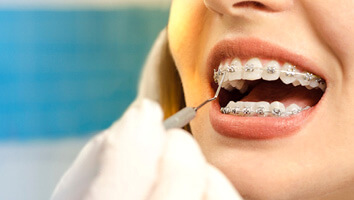
The cost of your treatment will vary based on the specifics of your emergency. Simple issues like a loose bracket or an object stuck between your teeth are usually straightforward and won't break the bank.
However, more complex situations may involve higher costs. For instance, if your retainer breaks, you might need a replacement, which can be pricey. Severe oral health issues like deep cuts in soft tissue or decay may require extensive treatment. In such cases, we may need to work with your general dentist or a specialist to ensure comprehensive care.
Does Dental Insurance Cover Orthodontic Emergencies?
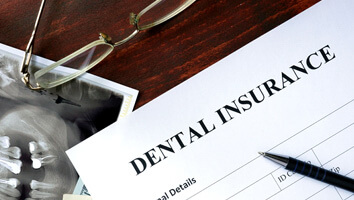
Since each dental insurance plan is unique, it's impossible to know how your benefits will apply to your circumstances. Certain plans have a lifetime orthodontic maximum, which, if fully utilized for braces, may leave no coverage available for emergencies. However, if your emergency is linked to your dental condition, your regular coverage could cover a portion of your treatment. Our team is experienced with insurance and committed to clarifying how your benefits apply in any scenario. We'll assist you every step of the way to maximize your coverage.
Other Options for Making Orthodontic Emergencies Affordable

In addition to insurance coverage, there are alternative options available to help you handle the expenses of your orthodontic emergency. For example, we offer free orthodontic consultations and flexible financing through Lending Club.
You may also have the option to use your healthcare savings account or flexible spending account to cover your treatment expenses. These accounts can offer additional flexibility in managing your orthodontic care costs.
Taking Care of Your Smile Can Save You Money
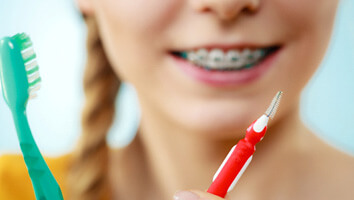
The best way to minimize the expense of orthodontic emergencies is by prioritizing excellent oral care. Follow these tips to lower your risk of encountering an emergency or lessen its severity:
- Keep up with scheduled orthodontic checkups to catch any issues early.
- Don't skip regular preventive dental visits with your general dentist.
- Be cautious when eating, avoiding sticky and hard foods that could harm your braces.
- If you suspect something's wrong with your orthodontic treatment, seek assistance promptly. Delaying treatment increases the likelihood of complications and higher costs down the line.
Keys to Preventing Dental Emergencies

Not all orthodontic emergencies are, in fact, preventable. Even so, there are some ways to greatly reduce your risk of facing one. Given that fact, try following these practices in the future:
Commit to a Solid Oral Hygiene Regimen

The development of a cavity or another oral health problem, like gum disease, will bring your teeth-straightening journey to an immediate halt. To prevent that from happening, you need to brush your teeth twice a day, floss each evening, and rinse with an antimicrobial mouthwash for 30-60 seconds at a time. This will go a long way in keeping your teeth and gums healthy, preventing odor on your breath, and removing surface stains.
Abide by the Dietary Restrictions

If you have traditional braces, then you need to steer clear of crunchy foods, like whole apples, raw nuts, and popcorn. Even if you have attachments, we recommend exercising caution with snacks like these. Instead, do your best to fill your meals with oatmeal, cooked vegetables, fresh fruits, and other nutrient-dense foods that are easier to chew. Also, make water your drink of choice; it will help remove debris from your teeth as well as prevent dry mouth.
Prioritize Your Follow-Up Visits

Whether you have traditional braces or Invisalign, it’s important that you come to our office for check-in visits. Not only do they allow us to monitor the movement of your teeth, but they also ensure that we can periodically check the condition of your brackets, wires, attachments, and any other orthodontic accessories you have. This could save you from a sudden, stressful, and last-minute trip to our office, so make sure to prioritize each one.
Limit Your Intake of Sugary Foods

We mentioned above the importance of avoiding crunchy, hard, and sticky foods, like caramel-filled candies. It’s also crucial that you limit your intake of sugary foods. That’s because over-indulging on ice cream, white chocolate, and even drinks like soda can dramatically increase your risk of tooth decay. This would bring your orthodontic treatment to a stop, adding weeks or months onto the backend of your plan. So, opt for foods and drinks that aren’t filled with added sugar, when possible.
Break Bad Habits, Like Chewing on Ice

Do you like to chew on ice cubes while you’re enjoying your drink? Do you bite your nails when you’re nervous? Do you use your teeth to remove plastic wrapping when the scissors aren’t close by? If so, it’s time to stop! In addition to increasing your risk of dental injuries, habits like these increase your risk of an orthodontic emergency, like a broken bracket.
Orthodontic Emergency FAQs
How Should I Sleep with Tooth Pain?
Throughout the teeth-straightening process, it’s normal to feel soreness from time to time. If you find that it’s interfering with your sleep, good news: there are a few things you can do to alleviate your discomfort. The first is eating soft foods at dinner, like mashed potatoes, mac and cheese, plain yogurt, and applesauce. About 30 minutes before bed, take OTC pain medication and put dental wax over any sharp edges of your brackets, wires, or aligners.
Should I Visit the Emergency Room First for Orthodontic Emergencies?
Unless you have a severe cut, your jaw is dislocated, you’re having trouble breathing, or you’re experiencing another potentially life-threatening symptom, we don’t recommend going to the ER first. That’s because hospitals don’t typically have dentists on-staff, and they almost never have an orthodontist available to fix a loose bracket, replace an attachment, etc. That’s why we recommend making your first call to our Rochester office!
Is It Safe to Use A Toothpick?
If you have something stuck between your teeth or in a bracket, you might be tempted to use a toothpick to get it out. We recommend trying something else instead: rinsing with warm saltwater and using floss to gently remove the debris. After all, toothpicks are sharp, but they often do more harm than good.
What Does Chronic Bad Breath Mean?
Chronic bad breath is often linked to diet. So, if your meals typically include fish, garlic, pickles, and other foods that are pungent, cutting them out is a good place to start. If that doesn’t do the trick, then take a look at your oral hygiene regimen; you need to brush, floss, and rinse with mouthwash consistently to keep your breath odor-free.
Important note: Since food particles can get stuck between your brackets and wires, it’s important that you thoroughly clean your teeth and your braces. If needed, use special oral hygiene products, like interproximal toothbrushes. If nothing seems to be working, then contact your dentist so they can determine if an untreated oral health problem, like a cavity, is the source.
Is There a Way to Prevent Mouth Sores?
Although mouth sores are very normal with braces, there are a few things you can do to help prevent them. A few examples include watching your intake of added sugar, committing to a solid oral hygiene regimen, and covering any sharp edges of your braces with dental wax. If one does form, gently rinse your mouth with warm saltwater as well (this will help it heal faster).



